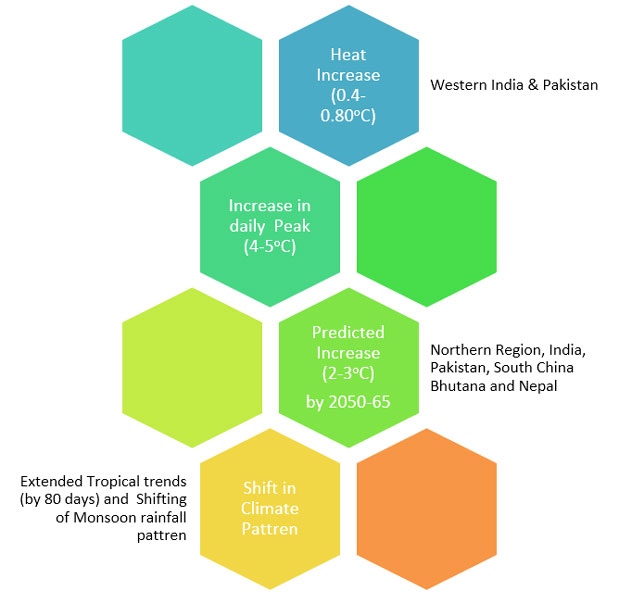Contact Person: Bashir Ahmad
Type: Workshop
The “Himalayan Adaptation, Water and Resilience (HI-AWARE) Research on Glacier and Snowpack Dependent River Basins for Improving Livelihoods” is a regionally collaborated project among Pakistan Agricultural Research Council PARC, Islamabad, ICIMOD (Nepal), TERI (India), BCAS (Bangladesh), ALTERRA of Wageningen University Netherlands as knowledge partners and GC University Faisalabad as local knowledge partners. The said project is being undertaken through Collaborative Adaptation Research Initiative in Africa and Asia (CARIAA) Programme whereas financed through IDRC-Canada and DFID-UK.
HI-AWARE project is in the process of establishing pilot study for monitoring in-house temperature Vs outdoor temperature and identifying heat stress thresholds for devising effective heat management plan with all partners including ALTERA, Netherlands, and GC University Faisalabad. In this regard, a Stakeholder Consultation Workshop on Heat Stress in Faisalabad is scheduled to be held on March 03, 2015 at 14:00 hrs in GC University, Faisalabad, Pakistan to gain your valuable input and experience sharing on the issue being faced by the inhabitants of the District. Relevant stakeholders including district govt. officers, city govt. officials, researcher and professional from medical college, hospitals, Resuce 115, Pakistan Meteorological Department, LEAD Pakistan, ALTERA, Netherlands , GC University, Pakistan Agriculture Research Council, Ambulance service will be participating in the stakeholder event.
Climate Change-Heat- Health Nexuses
Climate Change-Heat
 Intergovernmental Panel on Climate Change (IPCC) has stated that the countries in the Asian region have been facing warming trends since 1950 and increasing temperature extremes (Hijioka et al., 2014). In general, it is forecasted that extreme temperatures will become more prevalent in the future due to climate change.
Intergovernmental Panel on Climate Change (IPCC) has stated that the countries in the Asian region have been facing warming trends since 1950 and increasing temperature extremes (Hijioka et al., 2014). In general, it is forecasted that extreme temperatures will become more prevalent in the future due to climate change.
Heat-Health
Heat stress is defined as “any combination of work, airflow, humidity, air temperature, thermal radiation, or internal body condition that strains the body as it tries to regulate its temperature. When the strain to regulate body temperature exceeds the body’s capability to adjust, heat stress has become excessive” (Pinkerton & Rom, 2014).
The Pakistan Meteorological Department (PMD) has defined a heat wave as;
“When the temperature of more than five consecutive days exceeds the average maximum temperature by 5⁰C, the normal period being 1971-2000”
(Based on the definition recommended by the World Meteorological Organization).
• Heat events are severe in urban areas due to Urban Heat Island Effects.
• Slum Communities are susceptible to more negative consequences.
• Clean drinking water issues, approach to health facilities and lack of knowledge.
Climate Change-Heat-Health
Climate Change-Heat-Heath Management Plan
The Heat-Health Management plan aims to cover the following aspects;
• Climate Change-Heat-Health influences awareness plan among public.
• Establishment of Early Warning system.
• Education of health service providers and National Disaster Management Network.

